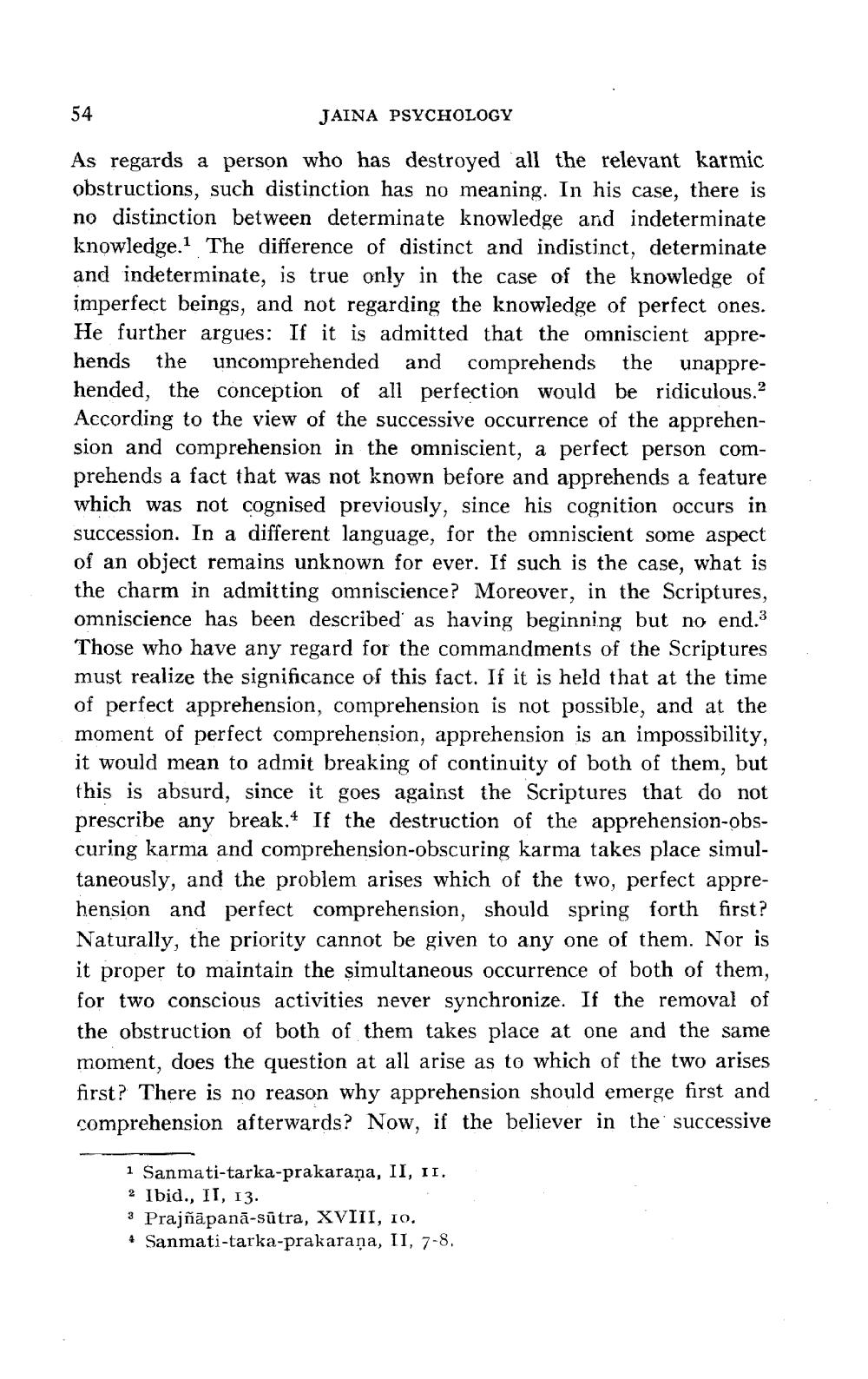________________
54
JAINA PSYCHOLOGY
As regards a person who has destroyed all the relevant karmic obstructions, such distinction has no meaning. In his case, there is no distinction between determinate knowledge and indeterminate knowledge.1 The difference of distinct and indistinct, determinate and indeterminate, is true only in the case of the knowledge of imperfect beings, and not regarding the knowledge of perfect ones. He further argues: If it is admitted that the omniscient apprehends the uncomprehended and comprehends the unapprehended, the conception of all perfection would be ridiculous.2 According to the view of the successive occurrence of the apprehension and comprehension in the omniscient, a perfect person comprehends a fact that was not known before and apprehends a feature which was not cognised previously, since his cognition occurs in succession. In a different language, for the omniscient some aspect of an object remains unknown for ever. If such is the case, what is the charm in admitting omniscience? Moreover, in the Scriptures, omniscience has been described as having beginning but no end.3 Those who have any regard for the commandments of the Scriptures must realize the significance of this fact. If it is held that at the time of perfect apprehension, comprehension is not possible, and at the moment of perfect comprehension, apprehension is an impossibility, it would mean to admit breaking of continuity of both of them, but this is absurd, since it goes against the Scriptures that do not prescribe any break. If the destruction of the apprehension-obscuring karma and comprehension-obscuring karma takes place simultaneously, and the problem arises which of the two, perfect apprehension and perfect comprehension, should spring forth first? Naturally, the priority cannot be given to any one of them. Nor is it proper to maintain the simultaneous occurrence of both of them, for two conscious activities never synchronize. If the removal of the obstruction of both of them takes place at one and the same moment, does the question at all arise as to which of the two arises first? There is no reason why apprehension should emerge first and comprehension afterwards? Now, if the believer in the successive
1 Sanmati-tarka-prakaraṇa, II, II. 2 Ibid., II, 13.
* Prajñāpanā-sūtra, XVIII, ro.
+ Sanmati-tarka-prakaraṇa, II, 7-8.




